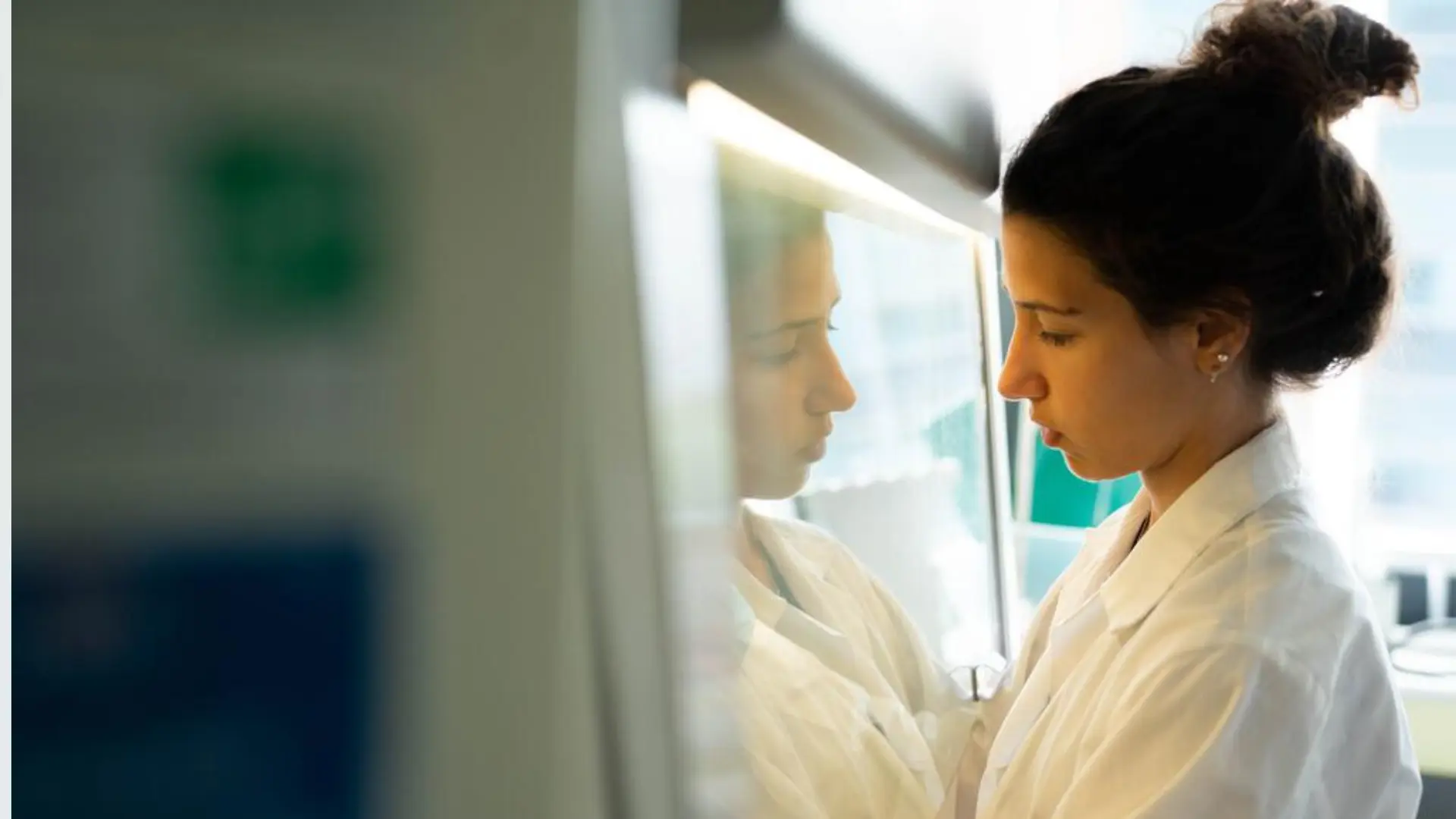PhD student, Elisa Pierella, was fascinated by the subject of microbiology and how bacteria can contribute to health and disease, which encouraged her to study at the University of Central Lancashire.
With an interest in microbiology, Elisa Pierella chose to pursue a PhD focused on microbiology. Previously, Elisa studied BA (Hons) Nutrition Biology and a master’s in Biological Sciences at the University of Camerino in Italy.
Talking about her subject choice, Elisa said: “Microbiology is very fascinating especially when we see that humans are actually super organisms. We’ve got more bacterial cells than human cells, and these bacterial cells can really contribute to our health and wellbeing.”
Gaining an insight on the process of bacterial species population is what Elisa enjoys most about her research at the University. She said: “I think this is a valuable step in the process of understanding how bacteria contribute to the switch between health, disease and back into health.”
When asked about what a typical day looks like, Elisa commented: “Every day is never the same and this is part of the joy.
She continued: “I set up bacterial co-cultural competition experiments mixing together a couple of bacterial strains and let them fight it off over time to see who prevails. All experiments are preceded by in silico work, planning the experiment and then followed up by data processing and analysis. The work is a mix of lab and bench-based work. This can be over a few hours or days depending on the experiments I am running.”
"For anyone thinking of doing a PhD I would say plan in advance and be ready for the unexpected. Don’t be afraid to do something new and to learn something new every day and to challenge yourself."
— Elisa Pierella, PhD student
Reflecting on how the facilities have benefitted her learning, Elisa said: “The University campus is a real campus, with all the Schools and Faculties in the same area, welcoming social spaces and comfortable and flexible study spaces, which help me to find the motivation to work and study. Moreover, well-equipped laboratories and talented staff are essential for undertaking my research.”
Recently, Elisa was the People’s choice winner at the University’s 3 Minute Thesis (3MT) June 2022 competition hosted by the Graduate Research School. Elisa presentation was titled ‘The Microbiota, the ever-changing enemy within us.’
Studying in the UK is a different experience for Elisa who completed her last two degrees in Italy. Reflecting on what she loves about Preston, Elisa said: “Preston is a reasonably sized town, full of peaceful green places, with vibrant pubs. Moreover, it is characterised by an international and diverse accepting environment that makes it a perfect place to stay.”
The future is full of opportunities for Elisa once she graduates. She said: “I believe that the PhD opens you to a wide range of downstream opportunities, which I would like to scrutinise in detail before taking my following step...but research will be definitely part of it.”
When asked about what advice she would give to anyone who’d like to pursue a PhD and study their subject of interest, Elisa said: “For anyone thinking of doing a PhD I would say plan in advance and be ready for the unexpected. Don’t be afraid to do something new and to learn something new every day and to challenge yourself.”
Find out more
- Article
Types of postgraduate study



